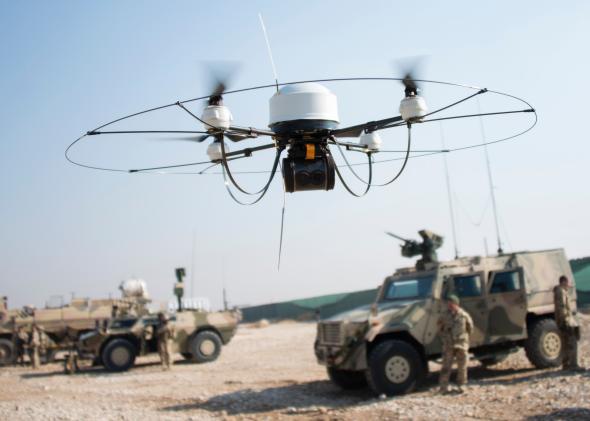Watching drone footage makes you sleepy and coffee only goes so far. That’s why the Pentagon is trying to develop a new way to increase attention: electric brain stimulation. Researchers are testing two non-invasive methods which pass small amounts of electrical current into the brain. Here’s the Boston Globe with the details:
In one scenario, the test subjects — some who received caffeine, some brain stimulation, and the rest nothing — were kept awake for a full 30 hours to see who would measure best in wakefulness and vigor.
“I wasn’t sure what to expect,” said Staff Sergeant William Raybon, one of the participants. “When I was initially hooked up to the electrodes there was a small tingling sensation.
But he said that despite being so sleep-deprived, he felt “refreshed” after undergoing the treatment.
Subjects such as Raybon who received the brain stimulation “performed about twice as well as people who got nothing,” said [R. Andy McKinley, a biomedical engineer who oversees the research].
Electric stimulation test subjects also outperformed those on caffeine and didn’t suffer from side effects like jitters and a crash come down. But before you get too excited, there are some kinks to work out such as skin irritation from electrodes, headaches, and the big question, long-term safety. Translation, it may be a while until the high-tech coffee substitute becomes standard issue and even longer until the hardware becomes available to civilians.
